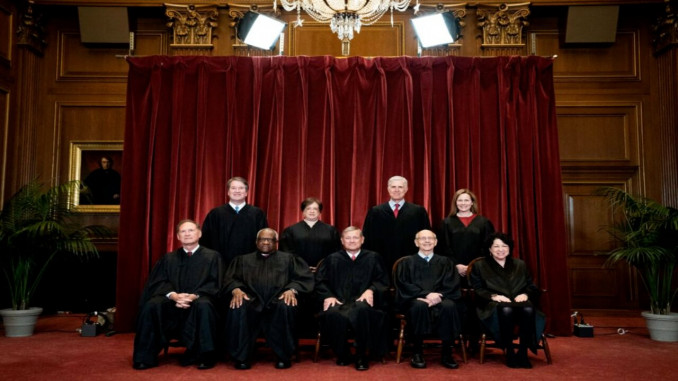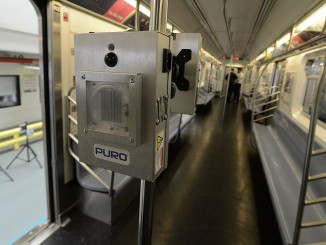
The U.S. Supreme Court began a new term on October 4. On its docket are several notable and potentially influential cases to be heard by the court in the upcoming months. They include a New York state gun regulation, some cases relating to people sentenced to death, a case from a Guantanamo Bay prisoner seeking to unblock information about his torturers, and a case about whether Maine may exclude religious schools from its state tuition program. But most attention in the press has focused on the Texas anti-abortion law and a similar one in Mississippi..
All of this should make us wonder how it is that the Supreme Court has such an important role in American life, and what effects it actually has.
It is often said that the Court is responsible for determining the will of “the founders” by interpreting the Constitution. But the founders were not concerned with women’s rights, let alone abortion rights, so what does their so-called “will” say about these current issues?
Why should we care about the will of the founders? They were representatives of the capitalist class and the slave-owning class of the British North American colonies who became the rulers of the newly created United States. The government they created initially gave the right to vote only to property owners, effectively denying the right to vote to women, slaves, most wage-working men, and indigenous people. The founders also framed the infamous Three-Fifths Compromise, giving extra representation to the slave states based on their slave population, but no representation to the slaves themselves. They also allocated an equal number of senate seats to each state regardless of population, giving disproportionate power to relatively unpopulated states. They did not intend that everyone should have a real say in government – only those of their favored classes.
Chattel slavery in the U.S. officially ended with the Civil War, when the capitalists of the Union defeated the slaveowners of the Confederacy. Since then, the laws and cases that the Supreme Court has been charged to interpret have been written to serve the interests of the capitalist class. But even if the law was not already biased, the justices of the court are not impartial. They come almost exclusively from a well-educated elite or from the ruling class itself, completely accept the system as is, and tend to favor the interests of the powerful in our society. They are appointed to an indefinite term and cannot be removed from their positions except by resignation or death, so they typically serve for decades without any accountability to ordinary working-class people.
The history of the Supreme Court shows how the bias of its members affects their decisions. In 1857, the Court in Dred Scott v. Sandford ruled that people of African descent were not citizens, and were not entitled to freedom, but could instead be treated as property. The Chief Justice of the Supreme Court at the time, Justice Roger Taney, was a slave owner, and was appointed to his position by President Andrew Jackson, another slave holder. In the late 19th and early 20th centuries, the Court ruled over and over that the 14th Amendment, written primarily to protect former slaves after the Civil War (and thereby weaken the former slave owners), could be used to protect the rights of big business to avoid regulation and use their property as they see fit. In 1944, the Court supported President Franklin Roosevelt as he incarcerated more than one hundred thousand Japanese-Americans in the infamous internment camps. From 1896 until 1954, the Supreme Court allowed the doctrine of separate but equal to justify the Jim Crow era. In 2000 the Court stopped a contested vote count in Florida, effectively appointing George W. Bush President. In cases like the 2010 Citizens United case, it ruled that the wealthy and powerful can spend as much money as they want to politically confuse and manipulate the public, with no real limits or regulations. More recently, it has supported a variety of anti-working class laws and policies: the gutting of the Voting Rights Act, a Muslim travel ban, restrictions on workers’ rights to organize, and blatant and systematic gerrymandering designed to guarantee political dominance by an increasingly reactionary Republican Party.
It should be clear from just these examples that the Constitution was not set up to establish “justice for all.” It was written by and for slaveowners and the newly emerging capitalist class to protect their interests. The nine members of the Court are political appointees. Sometimes their decisions sway with the political winds, and they often try to justify their positions with legal niceties, but overall they are there to preserve the system of class rule, the dominance of the One Percent.
The Supreme Court has always been a political organ of the ruling class. It will rule to maintain the will of the capitalist ruling class and its allies, like religious fundamentalists who want an end to abortion. We cannot depend on the Supreme Court to make “good” decisions that are meant to benefit us. That was never what “the founders” intended.




